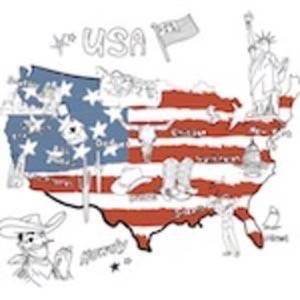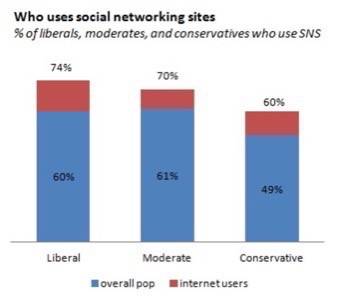You have a friend on Facebook who posts non-stop about all things politics. This friend is either a die-hard progressive, a staunch Republican or a total schizophrenic mixed bag who only posts outrageous political commentary to piss off other users.

With the Republican primaries in full swing, you may see more political-minded posts tend to gathering at the top of your news feed. Depending on how much or how little you care about politics, you’ll either find yourself glued to the news feed or avoiding it all together. Politics and social networking sites, particularly Facebook, don’t mix as well as you think. Keeping the conversation light means only posting about more benign subjects, like sports, news and the weather. When it comes to politics, you’re bound to piss someone off. But chances are that pissed off user will remain silent. A new study from Pew finds that almost four-in-ten users discovered through postings by friends that their political beliefs were different than they thought. Some users even blocked, unfriended or hid those users’ posts from the news feed because they so strongly disagreed, or they were just sick of seeing so many posts all the time.
Others decided to stay away from politics all together. A total 22% of social networking site users do not post sensitive political commentary or links for fear of pissing someone else off. After all, it’s hard to get political without upsetting at least a few friends. You won’t even know if you’ve pissed someone off because they probably won’t comment or like your post. Pew also found that liberals have the highest visibility on social networking sites – and they also make up the highest percentage of Internet users.

Among social networking site users, 25% agree or mostly agree with their friends’ political postings; 73% of users “only sometimes” agree or never agree. If there is disagreement, 66% of SNS users say they usually ignore posts and only 28% of those users respond with comments or posts of their own. Only 5% say it’s all circumstantial.
Social Networks and Politics Do Not Make Good Bedfellows
Logging onto Facebook and Twitter is always a crapshoot. You never know what type of information you’ll start receiving, especially since the Facebook news feed uses an algorithm to identify what it thinks you want to read, and from whom. If you’re rather particular, you could go through and categorize Facebook users into smart lists and just check those. Facebook is also rolling out interest-based lists in the coming weeks. But the list element does take away the oft-times enjoyable randomness of the Facebook news feed. On Twitter, users can at least rely on real-time updates, or neatly categorize using lists.
If there’s some big political event going on, logging onto Facebook sometimes feels like accidentally walking in on a political rally…depending on who you’re friends with. It will most likely be a rally organized around people you agree with because that friend whose political beliefs you disagree with may not actually show up. Facebook shows you what you want. So you won’t see opposing views unless you actively seek them out, which means that you can create your own filter bubble of news and information. Says the Pew study, “as a rule, the most active and engaged political participants on SNS sit at opposite ends of the ideological spectrum, yet their experiences around political material on SNS are quite similar.”
Like most public social networks, Facebook and Twitter are just platforms for discussion. What you choose to discuss is up to you. But if your friends and followers are not either far Left or far Right, chances are they’re a bit more complex. Your friends and followers are not political organization fan pages. They are the people you talk with, most likely about more than just politics. They are your friends.
On social networking sites, polarizing conversations and charged story articles elicit tons of feedback and commentary. It’s easy to receive quick, simple feedback by posting a polarizing political story. Yet it is the more complex, nuanced stories from a thoughtful friend or follower that don’t get noticed as much – and it’s those that may cause a more subtle shift of the personal-as-political on social networks, including yours. Meanwhile, some conversations on social networks create echo chambers of agreement and mutual outrage rather than real, honest discussion.
















